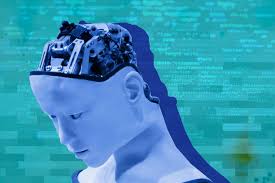Legal aspects of data protection and privacy in the field of artificial intelligence in Ukraine
In Ukraine, personal data protection is regulated by a number of legal acts that set requirements for the processing and protection of personal data, including its use in artificial intelligence (AI) systems. The main legal acts regulating this area include the Law of Ukraine "On Personal Data Protection" and other relevant regulations.
The Law of Ukraine "On Personal Data Protection" (PDP)
The Law of Ukraine "On Personal Data Protection" (PDP) came into force on January 1, 2011. The main provisions of the PDL that are relevant to data processing in the context of AI include:
- Data processing principles: Personal data must be processed lawfully, fairly and transparently. It should be collected only for clearly defined, legitimate purposes and not processed in a manner incompatible with those purposes.
- Consent of the data subject: The processing of personal data is possible only with the consent of the data subject, except in cases provided for by law.
- Rights of data subjects: Data subjects have the right to access their personal data, rectify it, delete it, limit processing, and object to processing.
- Transparency: Organizations should provide data subjects with clear and understandable information about how their personal data is used.
- Data security: Organizations are required to take appropriate technical and organizational measures to protect personal data from unauthorized access, loss, destruction or damage. You may be interested in the following articles: Analysis, consultation, evaluation. legal analysis of the situation, lawyer's consultation, lawyer's consultation, analysis of documents, legal analysis of the situation, written consultation, verification of documents by a lawyer, lawyers' documents, lawyer's help online, lawyer online, legal opinion, legal opinion of a lawyer, lawyer online.
Impact on artificial intelligence
In the context of AI development in Ukraine, it is important to consider the following aspects:
Transparency and explainability of algorithms
- Explainability: AI systems should be designed to explain their decisions to users. This is important to ensure transparency and trust in AI systems.
- Algorithm audits: Regulators may require algorithm audits to verify compliance with data protection laws.
Data minimization
- Data collection: AI systems should collect only the data necessary to perform specific tasks, minimizing the amount of personal data.
- Anonymization and pseudonymization: Using anonymization and pseudonymization techniques to reduce the risk of privacy breaches.
Data protection impact assessment
A data protection impact assessment is mandatory for AI systems that may significantly affect the rights and freedoms of data subjects. Organizations must identify and minimize the risks associated with the processing of personal data in AI systems.
Ethical aspects of AI usage Ethical principles:
The use of AI must comply with ethical principles, including respect for privacy, fairness, justice, and non-discrimination. Ethics commissions: Establish ethics commissions at organizations involved in the development and implementation of AI to assess the ethical aspects of the use of technology and provide recommendations.
Data protection in the context of specific applications of AI medicine:
In the medical field, AI is used for diagnostics, treatment, and research. Special attention is paid to the protection of medical data, which is extremely sensitive;
Finance: AI is used for risk management, fraud detection, and personalization of financial services;
Ensuring the protection of financial data is critical to preventing losses and ensuring customer confidence.
Transportation: The use of AI in transportation systems, including self-driving vehicles, requires the protection of passenger location and movement data.
Work environment: Using AI to monitor employee productivity and behavior requires clear rules to protect their personal data and privacy.
Cooperation with government agencies and regulators Interaction with regulators:
Organizations should actively engage with government agencies and regulators to ensure compliance with data protection laws;
Reporting: Organizations are required to provide reports on the measures taken to protect personal data and inform regulators of privacy breaches.
Education and awareness raising
Employee training:
Regular training of employees of organizations working with AI on data protection and privacy issues.
Information campaigns:
Conducting information campaigns to raise public awareness of the rights and measures to protect personal data in the context of AI use.
Conclusion.
Data protection and privacy in the field of artificial intelligence in Ukraine requires a comprehensive approach that combines compliance with legal requirements, implementation of international best practices, and ethical standards. Important aspects include ensuring transparency, explainability of algorithms, minimization of collected data, data protection impact assessments, and regular monitoring. Only through the concerted efforts of legislators, AI developers, and the public can a high level of personal data protection and trust in AI systems be achieved.

































